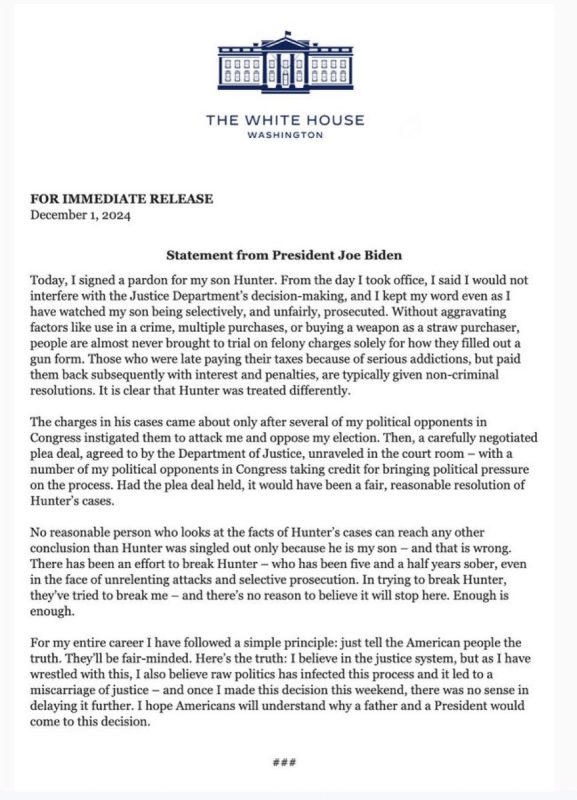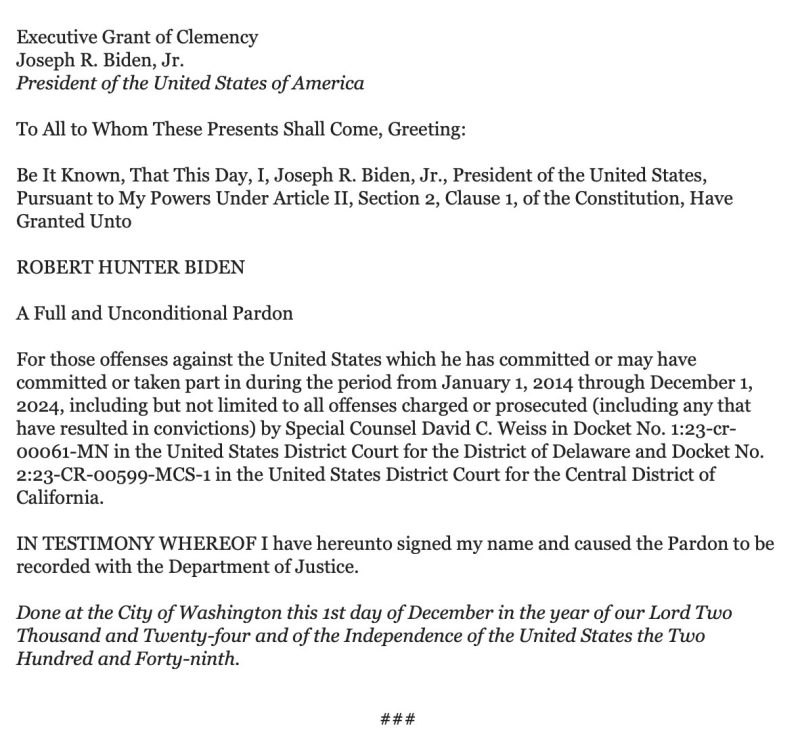In a landmark decision on December 1, 2024, President Joe Biden issued a full and unconditional pardon for his son, Hunter Biden. The pardon comes amidst ongoing controversies and legal challenges surrounding Hunter’s past actions, including charges related to tax offenses and firearms documentation.


Key Details From the White House Statement
President Biden defended his decision in a statement, emphasizing his belief that Hunter’s prosecution was politically motivated and uniquely harsh. He pointed out that similar cases, without aggravating factors such as the use of weapons in crimes, rarely result in felony charges. Instead, they are typically resolved through non-criminal measures.
Biden highlighted how a carefully negotiated plea deal had been derailed due to political pressure from opponents in Congress. He also noted Hunter’s personal progress, citing five and a half years of sobriety, and condemned the legal actions as part of a broader effort to attack him and his presidency.
“I believe new politics has infected this process and led to a miscarriage of justice,” Biden said, calling for Americans to understand the context of his decision as both a father and President.
The Pardon Document
The official grant of clemency, signed by President Biden, covers all federal offenses Hunter may have committed between January 1, 2014, and December 1, 2024. The document directly references the investigations conducted by Special Counsel David Weiss in Delaware and California.
This decision reinforces Biden’s claims of politically motivated attacks on his family, further fueling debates about the fairness and impartiality of the legal system in high-profile cases.
Calls for Pardons of Trump and January 6 Defendants
Following the announcement, public pressure has mounted for President Biden to extend similar clemency to former President Donald Trump and those charged in connection with the January 6 Capitol riot. Many argue that these prosecutions were also politically motivated and that Biden’s pardon for Hunter sets a precedent for addressing perceived injustices in politically charged cases.
Critics of Biden’s decision argue that granting Hunter a pardon while leaving others to face prosecution reinforces the perception of a double standard in the justice system. On social media, the hashtag #PardonTrump has trended, with advocates pointing out that if Biden acknowledges political bias in prosecutions, he should address it across the board.
Political and Public Reactions
The pardon is expected to intensify partisan debates, with critics accusing Biden of abusing presidential power and supporters framing the move as a necessary step to correct systemic injustices. The demands for Trump’s pardon and clemency for January 6 defendants add a new layer of complexity to the political fallout.
This development raises broader questions about the role of presidential clemency in politically sensitive cases and whether it should be used to address systemic flaws in the justice system. As public discourse continues to heat up, the implications of this decision are likely to reverberate for months to come.